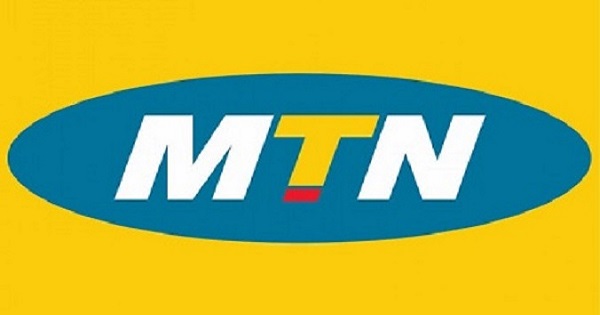Telecom
FG Targets MTN for Cash as Buhari Govt. Tightens Rules Ahead 2019 Elections- Expert

The many troubles of MTN group in Nigeria may both economic and political play the federal government of Nigeria, according to Ron Klipin, an analyst at Cratos Wealth in Johannesburg.
Klipin, was reacting as federal government has slammed MTN Nigeria with a $2 billion tax demand.
This is another curve ball directed at Africa’s biggest wireless carrier less than a week after it was ordered to refund $8.1 billion in illegally repatriated funds.
Klipin in a chat with Bloomberg said about the fines that “This could be an economic and political play by Nigeria”.
“The Nigerian economy is looking for additional sources of revenue and at the same time the government wants to be seen as tightening up the regulatory framework in the country.” Klipin added.
The additional scrutiny on MTN comes as President Muhammadu Buhari seeks re-election for a new four-year term in a February vote.
 Buhari
Buhari
His administration has pledged to fight corruption in Africa’s most populous nation, including tax avoiders and companies acting unscrupulously.
MTN continues to strenuously deny the allegations being made by the Central Bank of Nigeria and has provided further clarity on the company’s position.
MTN on its own said it had been in talks with Abubakar Malami, Attorney-General, over concerns around tax compliance; but it was billed all the same.
The company in a statement said it was billed for importation of foreign equipment and payments to foreign suppliers, all spread across a period of about ten years.
MTN outlined the tax dispute and refuted both accusations in a statement on Tuesday, yet faces an uphill battle to convince investors it won’t end up shelling out for either or both offenses in its largest market. The shares extended their slump, falling 17 percent to an almost 12-year low by the close in Johannesburg.
“We remain resolute that MTN Nigeria has not committed any offenses and will vigorously defend its position,” the Johannesburg-based company said.

The office of Nigeria’s attorney general calculated that MTN owes $2 billion related to the import of foreign equipment and payments to suppliers over the past decade.
It asked the South African company to carry out a self-assessment in response, but last week rejected the company’s findings, which concluded that it had owed — and paid — $700 million.
MTN reported the ongoing dispute for the first time Tuesday.
Last week, the Nigerian central bank told MTN to return funds it alleges the company illegally transferred out of the country over eight years through 2015.
That accusation put the carrier’s planned share sale in Lagos in jeopardy, while the sanctions may restrict its ability to pay dividends.
On the CBN allegations, MTN said that it is both regrettable and disconcerting that despite the historic engagements with the Nigerian authorities by MTN Nigeria, the senate investigation into the CCI matter, and the multiple tax assessments done by the Nigerian tax authorities over many years that were satisfactorily concluded, that these matters are being reopened.
Tobe Okigbo MTN Corporate Relations Executive said: “From the CBN’s own letter and subsequent statements, it is clear that there is no dispute that the capital captured in MTN’s books and for which CCIs were issued was imported into Nigeria, and this is acknowledged explicitly by the CBN.
It is equally clear that Nigerian law provides for guaranteed unconditional transferability of funds through an Authorised dealer in freely convertible currency relating to dividends or profits attributable to the investment, payments and in respect of loan servicing where a foreign loan has been obtained.”
He went on to say: “All dividend repatriation done by MTN Nigeria to its shareholders was done on the basis of its equity capital and all the historic dividends were declared against valid equity CCIs and in fact no preference dividends were declared and no interest in respect of these preference shares was paid. This means that it is incorrect to suggest that the conversion of a shareholder loan to preference shares has any relation to the repatriation of dividends. The two are simply not connected and we are trying to understand this position that the Central Bank has taken.”
Speaking on the Attorney General’s ‘demand notice’ for historical tax obligations, Mr Okigbo said: “MTN has conducted a detailed review of these claims, and provided evidence of tax remittance to the Attorney General’s office.
The Attorney General’s notice indicates that he is rejecting this evidence. We believe that all taxes due to the Nigerian government have been paid and these allegations have not been raised by any of the revenue generating agencies that MTN engages with regularly, and from whom MTN has received numerous awards for compliance.”
MTN Nigeria will continue to engage with the relevant authorities on all these matters and we remain resolute that MTN Nigeria has not committed any offences and will vigorously defend its position.
Update on the CBN letter on foreign exchange
MTN Group and the original shareholders injected a total of $402, 625,419 into MTN Nigeria between 2001 and 2006 in the form of loans and equity.
These initial inflows were the basis for the issuance of various legacy CCIs obtained from Authorized Dealers in accordance with regulations. The inflow of capital has been confirmed by the CBN.
The CCI process is essentially in place both for the protection of investors as well as to provide the CBN with documentary evidence for monitoring capital inflows and outflows. Although over time the CCIs have been re-issued, consolidated and re-constituted to reflect the changing MTN capital and shareholding structure, the amount of 402, 625,419, has remained the same.
One aspect of the changing capital structure was the conversion of shareholder loans to preference shares. It is important to note that all the historic dividends were declared against valid equity CCIs and in fact no preference dividends were declared and no interest in respect of these preference shares was paid.
The Attorney General’s notice of intention to recover tax
The Attorney General notified MTN that his office made a high-level calculation that MTN Nigeria should have paid approximately $2,0 billion in taxes relating to the importation of foreign equipment and payments to foreign suppliers over the last 10 years and he requested MTN Nigeria to do a self-assessment of the taxes in this regard that have been actually paid.
In August 2018 MTN submitted comprehensive documentation to the office of the AG. MTN Nigeria has also completed an initial assessment of the full period which indicates that total payments made to the tax authorities in regard to these foreign imports and payments in aggregate are $700 million.
There are valid reasons for the differences between the actual payments and the AG high-level assessment.
We were notified by the office of the AG last week that they have not accepted the documentation presented and they have given notice of an intention to recover the $2.0bn from MTN Nigeria.
Based on the detailed review performed MTN Nigeria believes it has fully settled all amounts owing under the taxes in question.
Telecom
MTN, Meta Partner to Enhance Voice and Video Calling Quality

MTN Group, Africa’s leading telecommunications provider, has joined forces with Meta to improve the quality and reliability of voice and video calls on real-time calling applications such as WhatsApp across 12 MTN markets.

The collaboration, which began at the Mobile World Congress (MWC) 2024, focuses on optimizing application-aware networks and network-aware applications to deliver a seamless and high-quality user experience. By leveraging data analytics and conducting comprehensive testing, MTN and Meta have successfully developed solutions that enhance the interaction between mobile networks and real-time calling applications.
Nigeria, MTN’s largest market, was the first to implement these enhancements. Early results indicate a remarkable 50% improvement in key performance indicators (KPIs), significantly enhancing the user experience for MTN Nigeria mobile users.
“This implementation further demonstrates our commitment to enhancing our customers’ digital experience.
“We’re pleased with the remarkable improvement in our real-time communication services, reflecting our commitment to innovative customer solutions,” said Yahaya Ibrahim, Chief Technology Officer (CTO) at MTN Nigeria.
Diego Marí, Head of Network Ecosystems Engineering at Meta, added, “The collaboration allows us to deploy advanced solutions for an unparalleled real-time experience in Nigeria and showcases our dedication to elevating service quality and improving user experience, while striving for continued efficiency in traffic delivery.”
The partnership underscores MTN and Meta’s shared vision of delivering cutting-edge solutions to enhance digital communication across Africa.
Telecom
MTN Plans Second Public Offer in Nigeria

Ralph Mupita, president,MTN Group, has announced plans to reduce its shareholding in MTN Nigeria through a public offer after it returns to profitability.

The group aims to cut its stake from 76 percent to 65 percent in line with its longstanding commitment to deepen local ownership, according to ITWeb, South African tech publication.
Mupita, who disclosed the plan during an editors’ roundtable meeting this week, said “The only localisation we have as MTN Group is we have potentially a sell-down in Nigeria at some point in time, approximately 11 percent. This is something we have said long ago, that over time, we would want more Nigerians owning the company, and we are prepared to sell down to 65 percent. We are at around 76 percent,” he said.
The anticipated offer would mark MTN’s second major retail public offering in Nigeria, following its 2021 sale of 575 million MTN Nigeria shares to local investors.
That offer was oversubscribed, resulting in the allocation of 661.25 million shares, including a 15 percent greenshoe option. This reduced MTN’s stake in its Nigerian unit to 75.6 percent from 78.8 percent.
More than 126,000 investors participated in that round, including retail and institutional investors such as Nigerian pension funds, representing approximately 6.5 million contributors.
At the time in 2022, MTN Group announced plans to further reduce its stake to approximately 65 percent from 75.6 percent.
Mupita confirmed that the Group would only proceed with a new offer once MTN Nigeria resolves its negative equity position and resumes dividend payments.
Currently, MTN Nigeria’s shares are trading at N235 per share.
Despite reporting a revenue of N3.36 trillion in 2024, a 36.03 percent bump from N2.47 trillion in 2023, it posted a loss after tax of N400.44 billion, a 192.25 percent rise from N137.02 billion in 2023.,
This negative performance was driven by macroeconomic headwinds, including record inflation and a steep devaluation of the naira, which raised operating costs and wiped out investor value.
MTN Nigeria has fallen behind MTN South Africa as MTN Group’s largest revenue contributor.
However, the Group is projecting a rebound in 2025, citing key drivers such as recent tariff adjustments, operational restructuring, and improving macroeconomic indicators in Nigeria.
Speaking at the roundtable, Mupita highlighted that the Group is anticipating a V-shaped recovery in Nigeria’s service revenue. He pointed to the recent structural reforms, such as the removal of fuel subsidies, the naira stabilisation, and improved dollar availability.
“The continued normalisation of these factors, particularly naira stability, should have positive impacts on consumer spending power and our business operations,” Mupita noted in the Group’s financial statement for 2024 recently.
Telecom
MTN Staff Commission New Set of Classrooms at Iwerekun Community High School

In a remarkable demonstration of corporate volunteerism, MTN staff, through the Y’ello Care initiative, have renovated a school block at Iwerekun Community Senior High School, Lakowe. This effort has restored hope and significantly improved learning conditions for both students and teachers.

The project, led by dedicated MTN employees, is part of the annual Y’ello Care campaign, which focuses on empowering communities through education, digital inclusion, and economic support.
Prior to the renovation, students at Iwerekun Community Senior High School faced challenges, including deteriorating classrooms that hindered effective learning. Recognising the need for intervention, MTN staff stepped in to transform the learning space, creating a safe, conducive, and inspiring environment for both students and teachers.
At the commissioning ceremony, Honourable Jamiu Tolani Alli-Balogun, Commissioner of the Lagos State Ministry of Basic and Secondary Education, acknowledged the significance of MTN’s contribution to education: “The education sector worldwide thrives on collaboration and commitment between public and private partners. MTN’s generous contribution is truly recognised, and I express my deepest gratitude for its unwavering commitment to supporting education in Lagos State. This new facility will provide a conducive environment for teaching and learning, enabling our students to reach their full potential.”
Representing the Ojomu of Lakowe, Prince Mukaila Adeola expressed the community’s gratitude: “This is a rare opportunity, and it is not every day that Lakowe benefits from such support. We truly appreciate MTN for this contribution, and we look forward to even more support in the future.”
The renovated school block is equipped with improved water supply and an inverter included in a serene environment that enhances the learning experience. This renovation will ensure that students and teachers have a more comfortable and sustainable academic setting.
Speaking on the significance of the project, Tobe Okigbo, Chief Corporate Services and Sustainability Officer (CCSSO) at MTN Nigeria, emphasised the personal investment of MTN staff: “I want to emphasise that this commissioning was made possible by the dedicated staff of MTN. Although MTN has a Foundation funded by 1% of the company’s annual profits, the credit for this commissioning goes to the MTN Nigeria staff members who, through their personal contributions, made this happen.”
Beyond the fresh coat of paint and structural improvements, initiatives like this create a lasting impact and a sense of hope in the lives of the students. The addition of a reliable power source and water facility means that students no longer have to struggle with poor infrastructure, allowing them to focus on their education.
For many students, access to quality education remains a challenge—not just because of financial barriers but also due to poor infrastructure, lack of resources, and limited teacher support. Programmes like Y’ello Care, alongside other education-focused volunteer initiatives, are helping to fill these gaps by creating safe, well-equipped learning environments and equipping students with knowledge beyond the classroom.
With the successful completion of the Lakowe school project, MTN reaffirms its commitment to education and youth development. The company encourages more organisations to embrace volunteerism and community service, as collective action remains a powerful force for societal progress.

 E-Business1 day ago
E-Business1 day agoNITDA Warns Against Fake Google Play Store

 E-Financial1 day ago
E-Financial1 day agoAfrica Loses $88.6Bn Yearly to Corruption- ECOWAS

 General News1 day ago
General News1 day agoLagos Commences Integration of NIN with State Single Social Register

 News1 day ago
News1 day agoNOA Uncovers Fraud by Banks, Universities in Students Loan Scheme

 E-Financial1 day ago
E-Financial1 day agoUBA Redefines Banking with Next-Gen PoS Terminals and Revamped MONI App

 E-Financial1 day ago
E-Financial1 day agoNIBSS Heads to Court to Recover N4Bn Lost due to System Glitch

 E-Financial1 day ago
E-Financial1 day agoSEC Bans Unregistered Digital Asset Exchanges, Online Forex Platforms

 General News1 day ago
General News1 day agoNigeria Records $6.83Bn Balance of Payments Surplus in 2024 Amid Economic Reforms






















